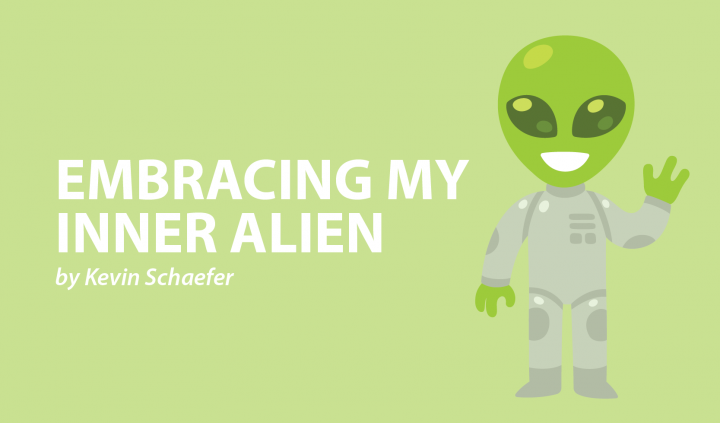Amid the Busyness of Life With SMA, I’m Learning to Embrace Stillness
Written by |

In college, my sanctuary was the room where the majority of my classes took place. Tucked away in a secluded corner of the humanities building, the film room was akin to a small auditorium. In the center was a large screen that my professors used to showcase all kinds of films, from obscure avant-garde and foreign pictures to ’80s blockbusters. Throughout my time as a student, I spent countless hours in this room, diving deep into the world of cinema via screenings and discussions.
My professors compared the act of watching a film to a religious experience. During screenings, instructors turned the lights off and prohibited students from talking or looking at our phones. With those precious hours devoid of texts, emails, and deadlines, I was free to immerse myself in other worlds and characters. I could put my troubles and worries on pause.
Living with a disability like SMA means that life is always on the move. Between scheduling appointments, coordinating with caregivers, doing breathing treatments, completing physical therapy, maintaining energy levels, and getting proper nutrition, managing SMA is a full-time job in and of itself. Add an actual full-time job on top of this, plus the stress of a pandemic, and my life is often equivalent to a revolving door of chaos.
So how do I manage? I’ve written previously about the importance of self-care and how those of us in disability communities have a tendency to push ourselves past our limitations. Perhaps it’s because we have a compulsion to “prove” that we are capable of doing the things able-bodied people can do. We want to show that we can work, have families and relationships, socialize, and make meaningful contributions to society.
All of those things are true. However, doing those things and listening to our bodies when they’re begging us to slow down aren’t mutually exclusive. One essay in the book “Disability Visibility” explores this idea by relating it to the concept of “crip time.” The idea is that time works differently for us due to the numerous obligations that come with having a disability. We have to respect our bodily needs, and sometimes that means being late to a meeting or appointment, and understanding that’s OK.
Recently, I’ve been doing my best to practice self-care and relish moments of tranquility. After a particularly eventful and overwhelming couple of weeks in management, I took the following Monday off. While the beginning of the week is usually the busiest for me, I decided to forego my regular meetings and emails to spend the day with my niece watching Disney movies. Amazingly, she picked a couple of the classics instead of wanting to watch “Frozen” for the 14,705th time.
Other steps I’ve taken toward this goal of stimulating my mental and emotional health include listening to a wide range of conversational and pop-culture podcasts, reading physical books, watching more movies instead of trying to binge-watch a full series, and expanding the horizon of the music I listen to. Through a YouTube video, I recently discovered a band called Beecake, whose lead singer is actor Billy Boyd from “The Lord of the Rings.” I’ve since fallen in love with their music, which is a unique blend of folk and soft rock. They’re now on constant rotation on my Spotify playlists, their songs giving me a boost of energy throughout the day.
Embracing the stillness is one of the hardest and most gratifying things to do. In a society that constantly measures a person’s worth by their productivity, pursuing self-care is tough. Yet, just like all of the film screenings I experienced in college, those moments of stillness are just as essential now.
***
Note: SMA News Today is strictly a news and information website about the disease. It does not provide medical advice, diagnosis, or treatment. This content is not intended to be a substitute for professional medical advice, diagnosis, or treatment. Always seek the advice of your physician or other qualified health provider with any questions you may have regarding a medical condition. Never disregard professional medical advice or delay in seeking it because of something you have read on this website. The opinions expressed in this column are not those of SMA News Today, or its parent company, Bionews, and are intended to spark discussion about issues pertaining to spinal muscular atrophy.




Leave a comment
Fill in the required fields to post. Your email address will not be published.